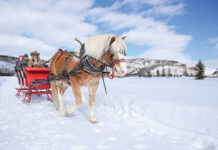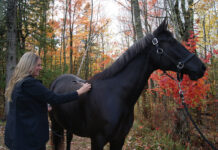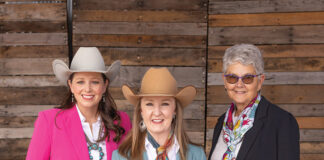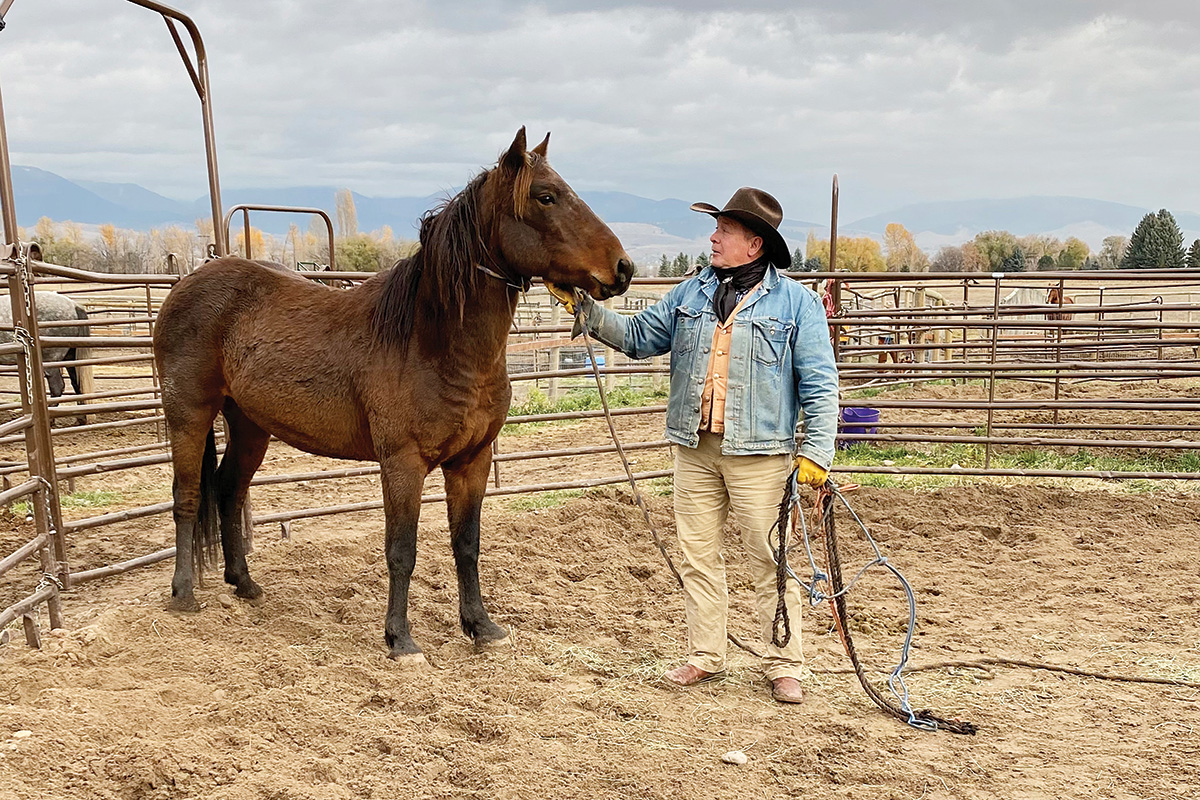
Sometimes horses, like people, need a leg up in life. That’s where Joe Misner comes in. Growing up in Alaska for much of his boyhood, the creator and director of the Wild2Ride Academy is no stranger to wild country. These days, in Missoula, Mont., he is offering the only wild horsemanship certification program of its kind anywhere in America.
For a horseman who likes to live by the motto, “Come on and let me show you,” solutions are easy.
Misner was just starting to work with Melinda Corso and Montana Reins of Hope (MROH) when Janet Rose came to them for help. Rose was organizing a benefit for a local rescue, Horse Haven Montana, and told them how a foster option for the colt, Dante, had proved temporary.
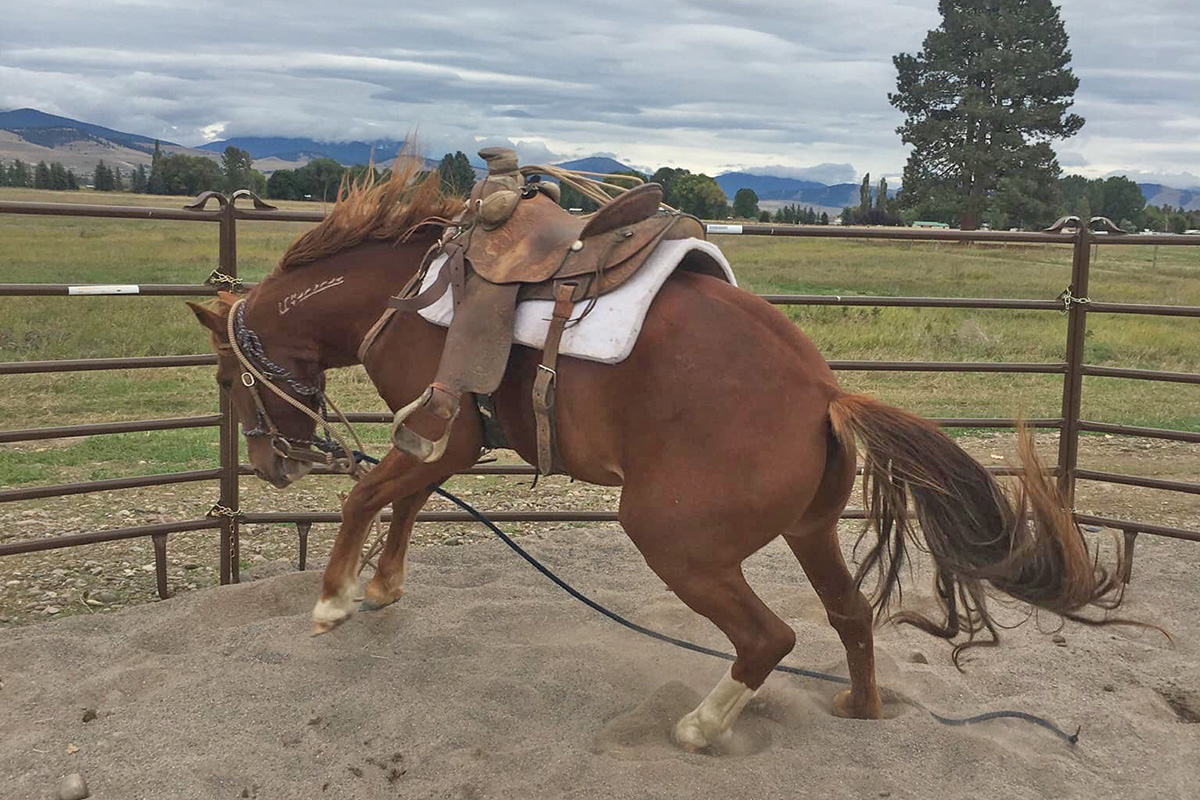
“At that time, Montana Reins of Hope was still early in its formation,” says Corso. “Taking Dante in really solidified MROH’s commitment to the American Mustang.”
Horsemanship That Creates Second Chances
Creating second chances for wild spirits—both horse and human—is what Misner has been doing for the last decade. That has included connecting horses with high-risk youth; working with Wounded Warrior veterans and Mustangs; and offering Rio Cosumnes Correctional inmates in Sacramento, Calif., a certifiable skill after their incarceration while giving wild horses a chance to earn release from their own federal pens.
Misner discovered during his West Coast horsemanship clinics that people wanted to learn what he had to teach. But unless they went to jail, they weren’t finding his unique curriculum.
That’s how the Rio Cosumnes Correctional Center Wild Horse Program, developed with the Sacramento Sheriff’s Department (one of only five such horse/inmate programs in the country), became the model for the curriculum now offered by Wild2Ride Academy at MROH.
Misner’s program in Sacramento County honed a successful wild horse gentling approach through retreat-pressure-release, which works with an untouched horse’s natural instincts. It also incorporates leadership horsemanship training for people, based on what he calls the five C’s: Calm, Confident, Caring, Clear and Consistent.
And Dante? As MROH’s first rescue horse and four-legged instructor, he has a forever home.
“Dante started it all,” says Corso, who has brought more than 25 years’ experience in children’s mental health and education to her role as Director at MROH. “We can make this world a better place for horses and humans through quality equine education programs that focus on building relationships with horses on a foundation of trust.”
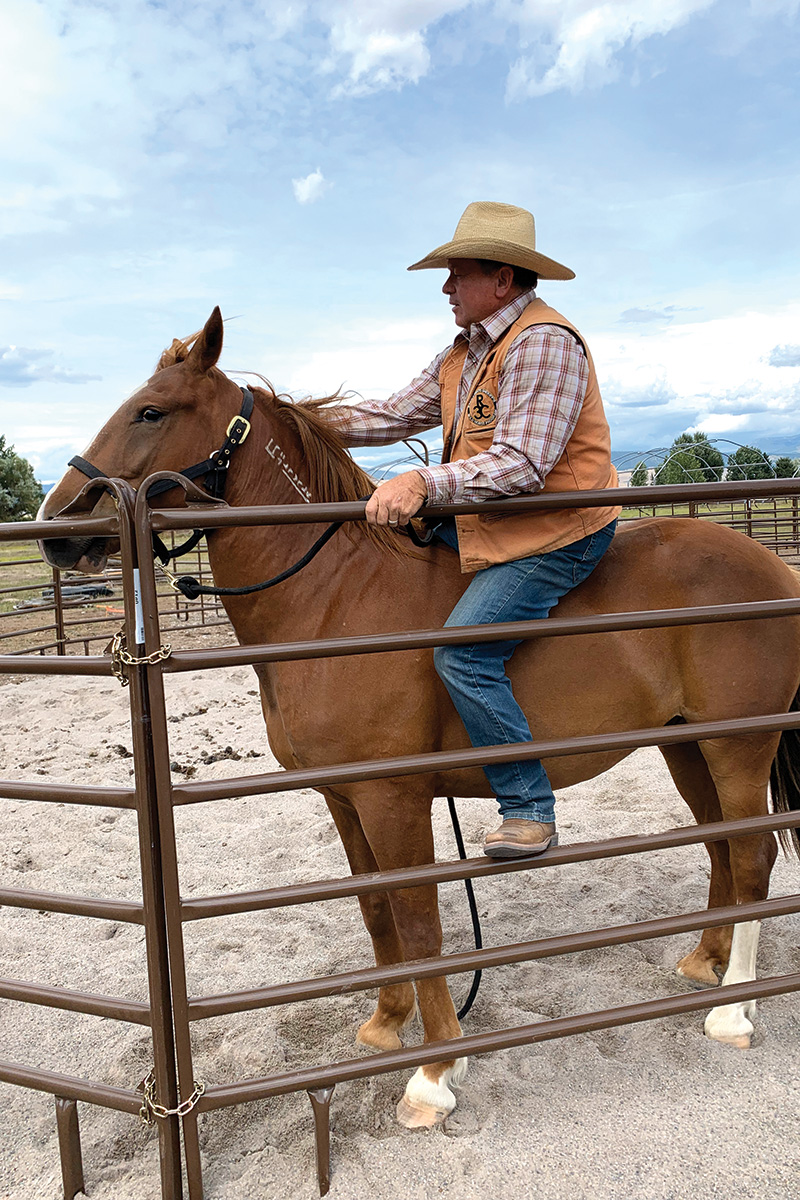
That’s why Misner, considered one of the premier Mustang trainers in the country, is there.
Cross-Fit, Ranch-Style
A veteran of 16 Extreme Mustang Makeovers, with nine Top 10s, and 2014 NORCO Extreme Mustang Makeover champion (with Kenai), Misner has built a 90-day wild horsemanship certification course progressing through six levels.
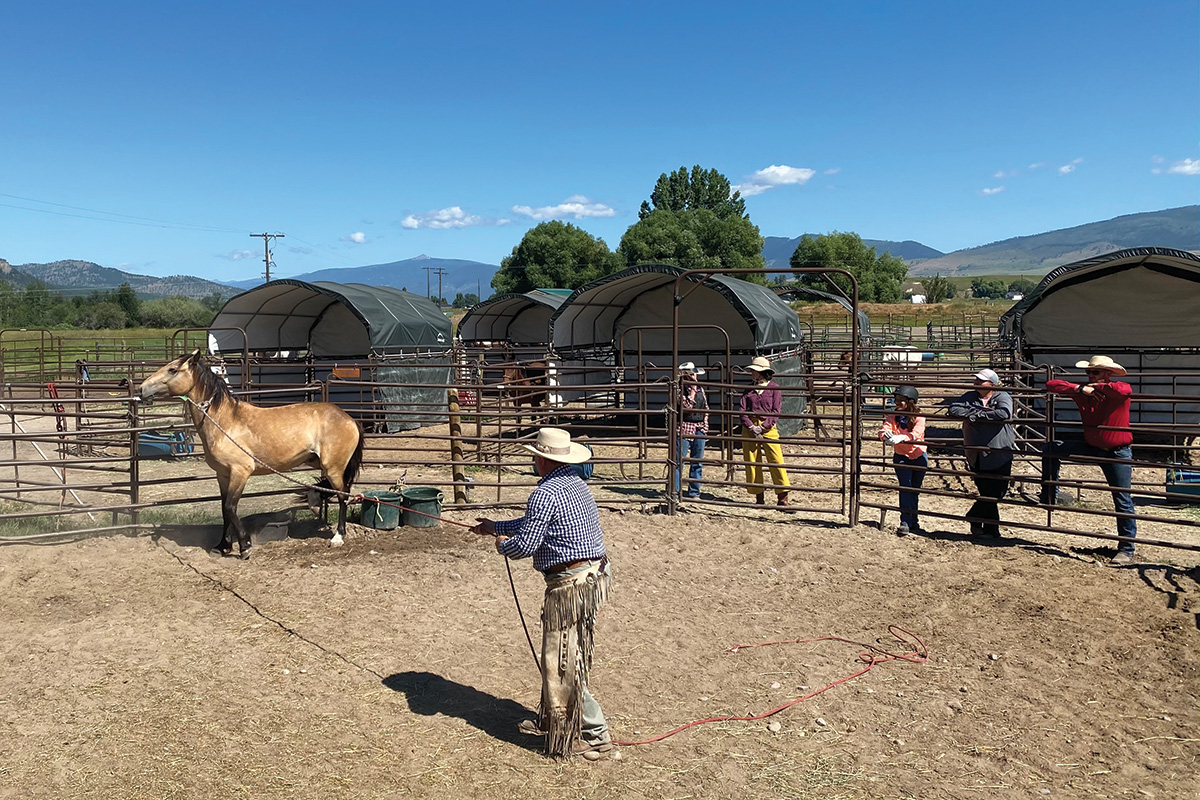
After completion of a level, students earn a Wild2Ride Academy certificate. At the end of 90 days and all six levels, they are fully certified in the skills necessary to train wild horses.
The name, Wild2Ride, comes from Misner’s experiences in Mustang makeovers since the early days, and from firsthand experience.
“I’ve worked with ‘wild’ men and horses,” he says. “I’ve watched guys who have gone through lots of failures find something to feel passionate about in horses. Here, we teach from the ground up: with a pitchfork, cleaning stalls. I like to call it ‘ranch cross-fitness!’” All joking aside, the program has proven to be transformative for the living creatures that go through it.
“It’s life-changing for everyone,” says Misner. “You can get an organic transformation.”
Wild Horse to Rider Hours Ratio
It starts with his thought-provoking wild horse hours to rider hours ratio.
“Over a year, a horse runs wild for 8,760 hours,” says Misner. “In comparison, 90 days in training adds up to just 60 hours of human interaction.”
That’s 8,700 hours of wild left in an animal apt to behave more like a deer in horse clothing. Take for example a 14-hand, 3-year-old Mustang mare that Misner watched clear a 3-foot fence from a standstill as easily as any whitetail.
“Horsemanship with wild horses is a lot of oxymorons,” he says. “You learn to stay calm but are ready for chaos.”
His 90-day wild horsemanship certification program is also unique in its freedom from traditional semester formats. Applicants do not have to commit 90 days all at once. Like the training approach they hope to learn and apply to horses, students go through the program pressure-free, learning at their own pace.
“One of the most important things about this program is its flexibility,” Misner explains. “You can start any time. You can stop at any point and then come back for more. You can come for a week at a time.” For students learning how to relax a wild horse, it helps to show them they’re not under pressure either.
Riding Forward
Misner is excited to see more students scheduled to enter Wild2Ride Academy through the rest of this year. Two Academy graduates, Hayden Sunshine Kunhardt and John Sullivan (who left a job with the U.S. Forest Service to learn wild horsemanship), have come on board as full-time, paid assistants.
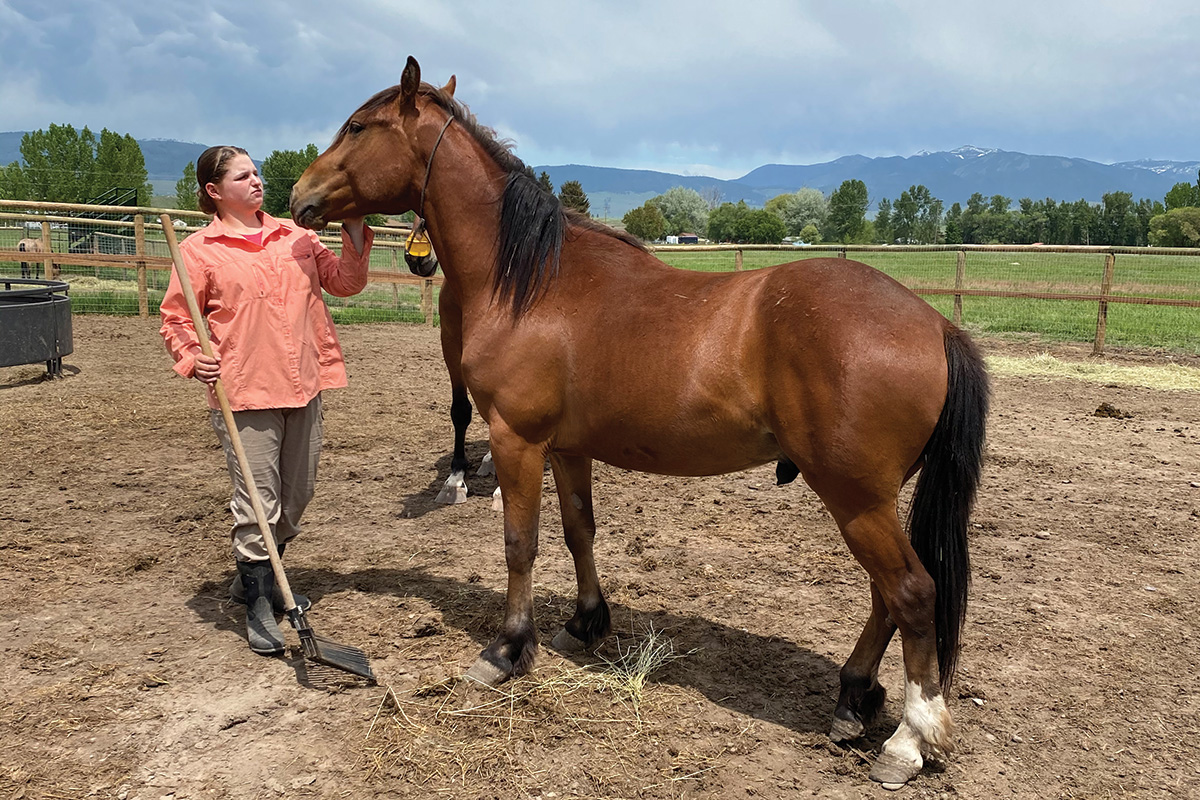
Misner estimates that since 2019, Wild2Ride Academy has seen two dozen burgeoning trainers enter the program and eight complete the full Academy, despite the pandemic.
“I know it sounds crazy, but COVID really got us going,” he says. “It’s been fantastic. People’s lives changed and more of them than ever want new and better connections.”
That’s on top of the hundreds of horses and inmates he estimates he has helped over his five years working with Sacramento County.
“My dad had a saying, ‘Aspire to inspire before you expire,’” he says.
It’s not something the quiet horseman brings up in casual conversation, but the courage and tenacity his own father displayed in life made an indelible imprint.
While born in Minnesota, 57-year-old Misner recalls how his father chose to take his family home to his own roots in Alaska. Misner was still a boy when his father, a heavy equipment operator, sustained a grievous spinal cord injury in an accident.
“My dad is my inspiration,” says Misner. “He was a veteran, and I saw what he went through as doctors held his spine together, as he went into rehabilitation to learn to walk again, and to hold his body upright. He showed me how you can do anything. To keep moving forward.”
A Horse Named Mohican
Another lesson about tenacity came from a “plain brown wrapper” of a Mustang, one of the last to go down the chute and into a BLM pen, who Joe nicknamed Mohican.
Reno, Nev., was where Misner was headed in 2009 to find his second Extreme Mustang Makeover project. He’d finished reserve champion with a horse named Laredo in the previous year’s Western States Mustang Challenge, and 16th nationally. Misner was feeling pretty good about his “formula” for training wild horses within limited timeframes as he stood along the pen watching a new herd of candidates emerge from a trailer.
But it got off to a horrific start. The horse he intended as his makeover candidate “ran right into the fence and broke its neck.”
Next to go was a 5-year-old gelding, taken from the wild a year previously and kept in a holding pen ever since, who was Misner’s resentful replacement. The horse was Mohican.
“He charged and grabbed my chest and front of my shirt as if to say, ‘I have four legs and teeth, and I’m not afraid to use them,’” recalls Misner. “‘Don’t tell me anything. Ask.’”
He had exactly 90 days to ask Mohican for a makeover and to travel from California to Texas to compete together.
For 59 days, 23 hours, and 59 minutes, Mohican didn’t offer much progress. On Day 60, Misner mounted up and started riding in the round pen, but couldn’t get the horse that had once galloped free across the prairie to break into a trot.
“I tried one little spank,” he recalls. “He blew up, rolled over on me, and this time, told me if I ever tried that again he’d squash me like a bug.”
With not much progress to show for those last 30 days, Misner resolutely loaded Mohican and began the 1,200-mile trek to Fort Worth. If he was lucky, he imagined the recalcitrant Mustang would only humiliate and not hurt him in front of all those spectators in the Will Rogers Equestrian Center.
“I purposely entered the Intermediate division,” he says. “I wasn’t expecting much.”
Misner certainly wasn’t expecting what came next. If Mohican saw him as one terrible, two-legged predator, the Mustang’s eyes pretty much popped out of its head when he realized there were thousands of such predators outnumbering them in Fort Worth.
“He stayed glued to me,” Misner recalls.
Maybe it was Mohican’s “come to Jesus moment,” but it worked. Man and Mustang finished 8th nationally, while also performing a freestyle Misner could never have predicted with this horse: “It included jumping over a barrel while holding a flag in one hand!”
In the happiest of all endings, Mohican was purchased at the auction following the competition, raising money for the Mustang Heritage Foundation and finding a forever home.
“I told the woman who bought him that he was very … particular,” he says.
Roses From a Devil’s Garden
Horse Illustrated caught up with Misner the same day he was preparing to welcome five new U.S. Forest Service Devil’s Garden Mustang mares—with foals—to MROH.
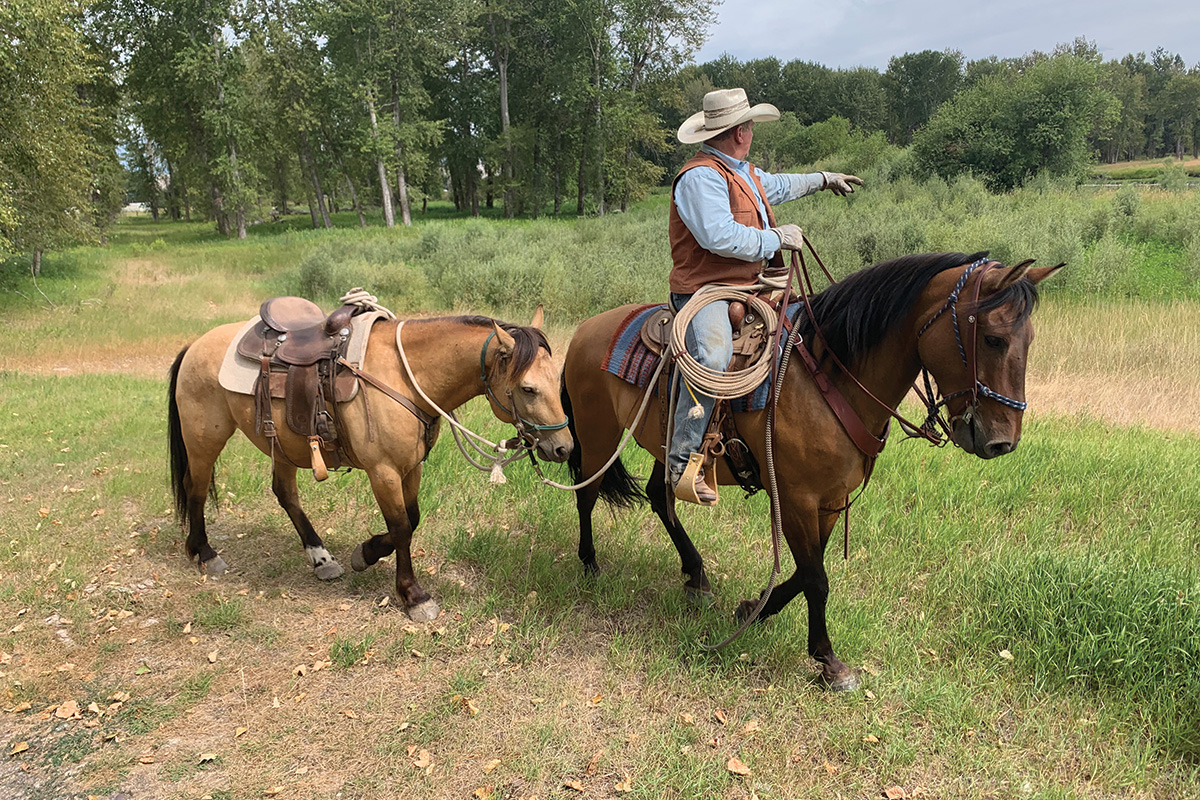
Named for a 500-square-mile patch of dense brush and jagged stone so inhospitable only “the devil himself” would plant a garden there, the Devil’s Garden Wild Horse Territory lies within Modoc National Forest outside of Alturas, Calif. According to the USDA and U.S. Forest Service, Devil’s Garden is the largest wild horse territory managed by the U.S. Forest Service in size and wild horse population.
“Devil’s Garden Mustangs have proven their adaptability, trainability and versatility since our first adoptions in 2018,” says Misner. “None of this would be possible without Reins of Hope and its 400 acres that house the facility and program. It couldn’t be done without them.”
It allows Misner and Wild2Ride to keep dreaming bigger and better, including filing for nonprofit 501(c)3 status and launching a fundraising campaign, because “we sure need a covered arena during these Montana winters.”
Mustangs need help, too.
“I know I can make a difference,” says Misner. “Mustangs gave me a master’s degree in empathy for horses, and for trying to do better, every day, with what I have to give.”
This September, Misner and his wife of 30 years, Missy, plan to compete a pair of 3-year-old BLM fillies in the Extreme Mustang Makeover in Fort Worth. A teacher for over 20 years, Missy is also curriculum co-creator of the Wild2Ride program.
“She’s been a huge inspiration in my evolution as a natural horseman,” says Misner. “Without her, I’d be a broken-up old bronc rider, for sure.”
Follow Joe and Missy, Wild2Ride, and the Devil’s Garden Mustangs at Montana Reins of Hope (available to forever homes after 90 days training) at www.montanareinsofhope.com and on Facebook @Wild2Ride and @MontanaReinsofHope.
This article about Joe Misner and his wild horsemanship certification program appeared in the October 2022 issue of Horse Illustrated magazine. Click here to subscribe!

